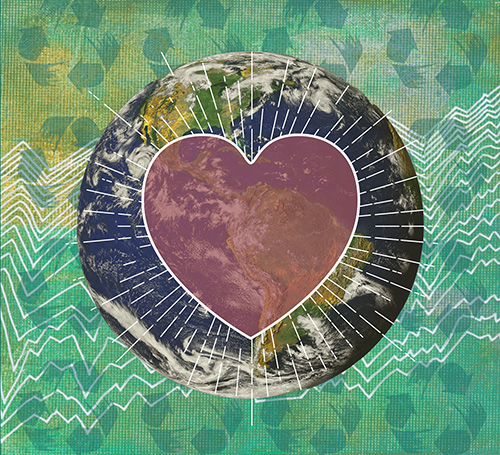STONO (Previously funded 2022)
STONO is a concert-ritual exploring the 1739 Stono slave rebellion through the voices of its beyond-human participants: ancestors, water, mushrooms, guns, drums, the Kongolese Virgin
Our shop will be on a break between January 4th – January 23rd. All orders placed between these dates will be processed on our return. Thank you!
We are gloriously, inescapably earthbound and yet we disregard our home at our own peril.
Our world is calling out, louder than ever, to wake up, listen deeply, and come into the right relationship with our land to save what we have left and plant the seeds for a thriving future.
The truth is that climate action and sustainable stewardship of our natural resources are essential for our survival here on Earth.
We can no longer turn our heads and ignore what we don’t want to see. It’s time to change.
How will we honour and care for our Mother?
#STWEnvironment

We are gloriously, inescapably earthbound and yet we disregard our home at our own peril.
Our world is calling out, louder than ever, to wake up, listen deeply, and come into the right relationship with our land to save what we have left and plant the seeds for a thriving future.
The truth is that climate action and sustainable stewardship of our natural resources are essential for our survival here on Earth.
We can no longer turn our heads and ignore what we don’t want to see. It’s time to change.
How will we honour and care for our Mother?
#STWEnvironment
STONO is a concert-ritual exploring the 1739 Stono slave rebellion through the voices of its beyond-human participants: ancestors, water, mushrooms, guns, drums, the Kongolese Virgin
State of Pernambuco, Brazil – Tabajara lands
“Areito: Taino Voices” is an Indigenous virtual monthly gathering that features two different invited Taino guest speakers each month ranging from artists, activists, teachers, academics,
Green Valley Project is a movement by young people to make a difference in repairing our environment. Whether it’s planting trees, removing invasive species, or
South Florida – Abiaka or Sam Jones, Chipco, Chitto-Tustenuggee and Chakaik
Chile – Abya Yala
Cowspiracy: The Sustainability Secret is a groundbreaking feature-length environmental documentary following intrepid filmmaker Kip Andersen as he uncovers the most destructive industry facing the planet today – and investigates why the world’s leading environmental organizations are too afraid to talk about it. Animal agriculture is the leading cause of deforestation, water consumption and pollution, is responsible for more greenhouse gases than the transportation industry, and is a primary driver of rainforest destruction, species extinction, habitat loss, topsoil erosion, ocean “dead zones,” and virtually every other environmental ill. Yet it goes on, almost entirely
Martin Prechtel’s experiences growing up on a Pueblo Indian reservation, his years of apprenticing to a Guatemalan shaman, and his flight from Guatemala’s brutal civil war to life in the U.S. inform this lyrical blend of memoir, cultural commentary, and spiritual call to arms. ‘The Unlikely Peace at Cuchumaquic is both an epic story and a cry to the heart of humanity based on the author’s realization that human survival depends on keeping alive the seeds of our original forgotten spiritual excellence.’ Prechtel relates our current state of ecological crisis to the rapid disappearance of biodiversity, indigenous cultures, and shared human
We join some of the brightest thought-leaders and visionaries of our time– to uplift a multitude of perspectives, to amplify grassroot voices, and to tell stories that would otherwise disappear in mainstream media. Key topics include the struggle to protect wild nature, to promote ecological renewal and resistance and to heal from the disconnection furthered by consumer culture and human supremacy.;
Climate Changers features interviews with remarkable entrepreneurs, scientists, activists, educators and other leaders who are taking initiative as we face a growing climate
In his 93 years, David Attenborough has visited every continent on the globe, exploring the wild places of our planet and documenting the living world in all its variety and wonder. Now, for the first time he reflects upon both the defining moments of his lifetime as a naturalist and the devastating changes he has seen. Produced by WWF and award-winning wildlife film-makers Silverback Films, David Attenborough: A Life On Our Planet is a first-hand account of humanity’s impact on nature and a message of hope for future
Passionate about ocean life, a filmmaker sets out to document the harm that humans do to marine species – and uncovers alarming global